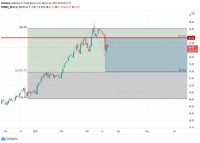|
Opalesque Industry Update - According to Greenwich Associates 2011 Asian Fixed-Income Investors Study, three banks dominate the Asian fixed-income trading business. Their year end report says: “The rapid development of local-currency fixed-income markets in countries across Asia is giving institutional investors throughout the region a strong incentive to do business with dealers such as HSBC, Deutsche Bank and Citi — the only banks that can truly claim to have fixed-income platforms that span all important Asian country markets and to offer robust capabilities within each.” The Greenwich study shows that the combined market share of these three dealers in Asian fixed-income trading increased to 30% in 2010–2011 from 26% the prior year. “This growth has cemented the position of HSBC, Deutsche Bank and Citi in the top rank of the Asian institutional fixed-income market. These three banks are joined by Barclays Capital — which also expanded its market share over the past 12 months — and Standard Chartered Bank as the 2011 Greenwich Share Leaders in Asian Fixed-Income Trading” the report says. Despite other dealers like Bank of America, The Royal Bank of Scotland and BNP Paribas adding market share in Asian fixed-income trading last year, Greenwich finds that there are signs that a shift in strategy among many sell-side competitors could further strengthen the position of the three market leaders. “Sell-side firms and investors report that risk appetite among “second-tier” dealers is shrinking as banks abandon efforts to build pan-Asian platforms in favor of more targeted strategies” the report says. Covering the entire Asian market is an expensive proposition from the banks’ perspective. ““Asia” encompasses a huge number of countries, each with its own currency, products, regulatory regime and even language, all dispersed over tens of thousands of miles. While dealers can cover major markets from a handful of central locations, providing service in the many local currency markets requires dealers to maintain an expansive network including offices and salespeople located throughout countries large and small.” The report found that rather than take on those daunting expenses, some dealers are instead narrowing their sights and focusing their resources on selected product, regional or client segments. “These banks are not retrenching — many of these dealers have been quite successful in Asia and their businesses here are profitable. But after a period of rapid expansion, these banks are now assessing how to maximize the profitability of their Asia operations and, in many cases, the answers they are arriving at involve consolidation”. The rise of local currency markets is a big driver in this process. Some of the world’s biggest banks are building out their local currency capabilities, but the high costs associated with this effort argue in favor of a selective approach targeting only certain Asian countries. “For the past 10–15 years, global banks have taken on clients in a range of Asian products and countries as they worked to build their presence here,” says Greenwich Associates consultant Abhi Shroff. “But now that they’ve established these businesses, many dealers are wrestling with the questions: ‘What do I really want to be in Asia? What products do I want to cover, and for whom?” The report found that fixed-income trading volume in Asia ex-Japan increased approximately 5% from 2010 to 2011 — a rate of growth that outpaced the performance of larger markets, such as the United States and Europe. Fixed-income assets under management by Asian institutions increased by more than 50% over the same period to more than $2 trillion according to the report. “As Asia’s fixed-income markets expanded last year, bonds denominated in local currencies accounted for approximately 40% of overall regional trading volumes. That 40% share actually understates the role of local currency products in Asia. The reason: Interest-rate derivatives make up approximately a third of overall Asian fixed-income trading volume, and many of these products are denominated in domestic Asian currencies”. “Although the composition of Asian fixed-income trading volume has fluctuated to some extent over the past several years in terms of local currency products versus products denominated in G7 and G3 currencies, there is no doubt that the rapid development of these local markets represents a sea of change over the past decade,” says Greenwich Associates consultant Tim Sangston. |
Industry Updates
Greenwich Associates names 2011 leaders in Asian fixed income trading, research and sales
Tuesday, December 27, 2011
|
|





 RSS
RSS







